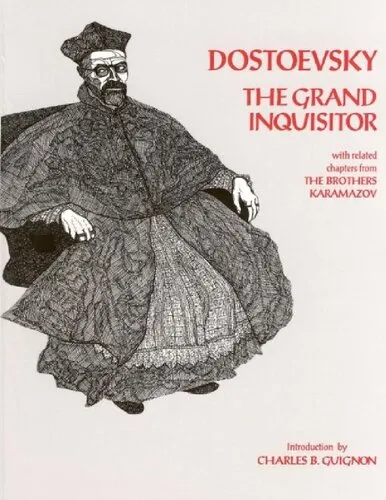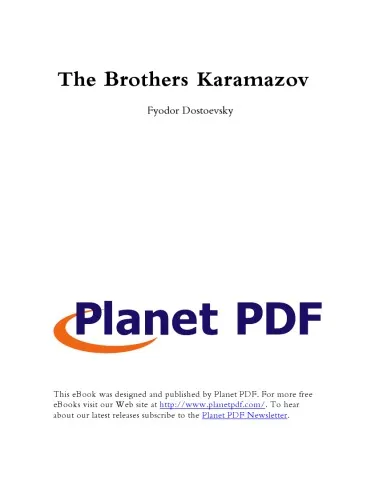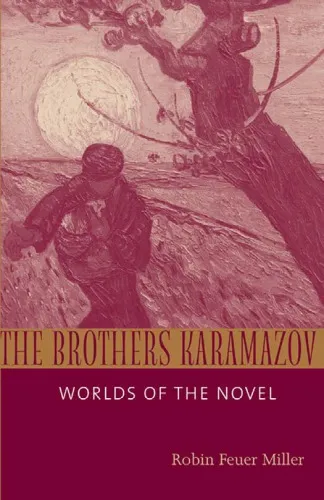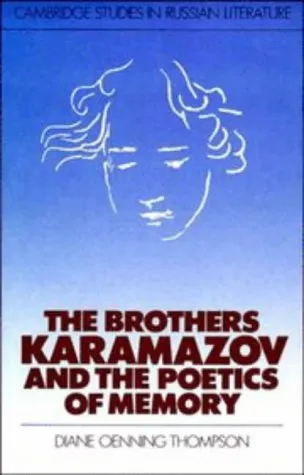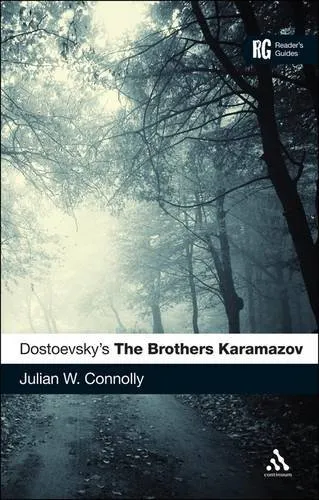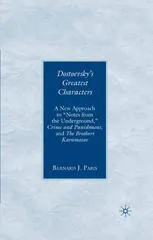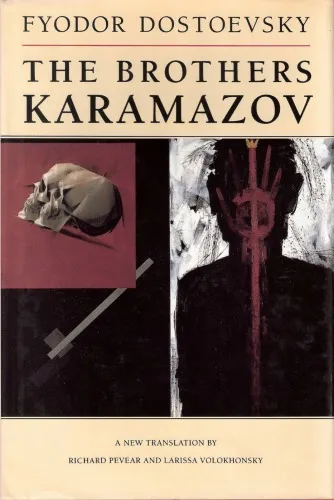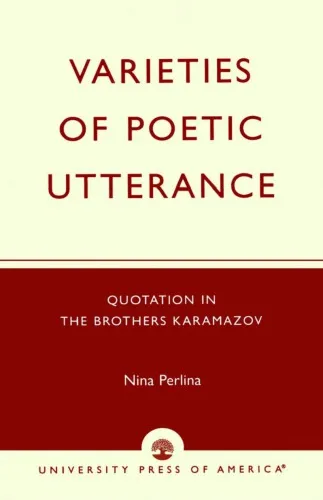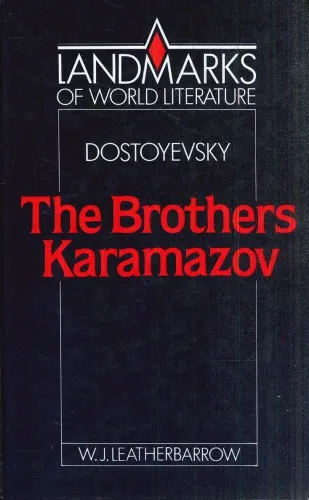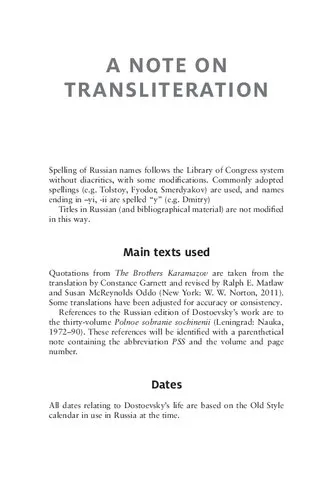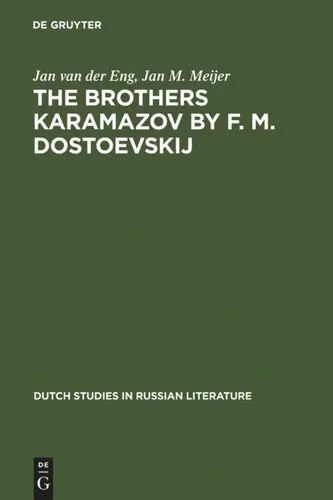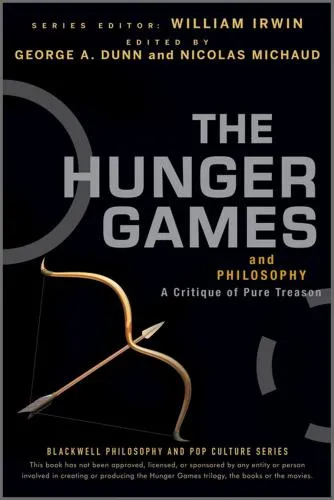The Grand Inquisitor: with related chapters from The Brothers Karamazov
4.5
بر اساس نظر کاربران

شما میتونید سوالاتتون در باره کتاب رو از هوش مصنوعیش بعد از ورود بپرسید
هر دانلود یا پرسش از هوش مصنوعی 2 امتیاز لازم دارد، برای بدست آوردن امتیاز رایگان، به صفحه ی راهنمای امتیازات سر بزنید و یک سری کار ارزشمند انجام بدینکتاب های مرتبط:
معرفی کتاب «بازجوی بزرگ: با فصول مرتبط از برادران کارامازوف»
کتاب «بازجوی بزرگ: با فصول مرتبط از برادران کارامازوف» یکی از آثار فلسفی و ادبی برجسته فیودور داستایفسکی است. این کتاب بخشی از شاهکار داستایفسکی، «برادران کارامازوف»، را شامل میشود و به عنوان یکی از مهمترین بخشهای این رمان تلقی میشود که به بررسی عمیق مسائل ایمان، عشق، آزادی و قدرت میپردازد.
خلاصهای از کتاب
در داستان «بازجوی بزرگ»، به کاوشی عمیق در موضوعات فلسفی و دینی پرداخته میشود. این داستان دربارهٔ یک اسقف بزرگ کلیسای کاتولیک قرون وسطی است که به دنبال برخورد با عیسی مسیح است که بار دیگر در جهان ظاهر شده است. بازجوی بزرگ به مسیح توضیح میدهد که کلیسا نیازی به او ندارد، زیرا مردم به آزادی که او ارائه میکند نیاز ندارند و قادر به استفاده از آن نیستند. این مکالمه نمادین به بررسی تضادهای بین ایمان و آزادی و قدرت کلیسا میپردازد.
مفاهیم کلیدی
- تضاد بین ایمان و آزادی و اینکه آیا انسانها توانایی پذیرش آزادی واقعی را دارند.
- نقد نقش کلیسا و قدرت مذهبی در هدایت قدرت و کنترل بر ذهن انسانها.
- پرسشهای اساسی دربارهٔ ماهیت خدا و انسان، و چگونگی سازگاری عشق الهی با انسانیت بشر.
نقلقولهای معروف
«چه کسی میتواند گرسنگی یک ملت را تحمل کند، اما وقتی آبی را به طلا تبدیل کردی، تو پادشاهی.»
«آزادی و نان در دستان توست، انتخاب کن!»
چرا این کتاب مهم است؟
«بازجوی بزرگ: با فصول مرتبط از برادران کارامازوف» به دلیل بررسی عمیق و بیپرده از موضوعات پیچیده اجتماعی، اخلاقی و فلسفی از اهمیت بالایی برخوردار است. داستایفسکی در این اثر به چالشهای بنیادینی که انسانها با آنها مواجه هستند میپردازد. این کتاب نه تنها به عنوان یک اثر ادبی برجسته شناخته میشود، بلکه خرد و فلسفههای آن توانستهاند تاثیری عمیق بر اندیشمندان و نویسندگان پس از خود بگذارند. کتاب با ترکیبی از داستانپردازی ماهرانه و تحلیل فلسفی بر تحولات فکری قرن بیستم و بیست و یکم تأثیر عمیق داشته است.
Fyodor Dostoevsky's "The Grand Inquisitor: with related chapters from The Brothers Karamazov" is a profound exploration of faith, free will, and the human condition. Extracted from Dostoevsky's magnum opus, "The Brothers Karamazov," the narrative has deeply resonated with readers, offering an intense dialogue on the nature of spirituality and authority.
Detailed Summary of the Book
"The Grand Inquisitor" is a parable within "The Brothers Karamazov," recounted by Ivan Karamazov to his younger brother Alyosha. The story is set in 16th-century Seville, during the Spanish Inquisition. Christ returns to Earth, only to be imprisoned by the titular Grand Inquisitor. The narrative unfolds as an intense conversation between the atheist Ivan and the faith-driven Alyosha, examining deep philosophical themes encapsulated by the confrontation between Christ and the Inquisitor.
In this encounter, the Grand Inquisitor condemns Christ for granting humanity the burden of free will, arguing that people prefer security and order over freedom and spiritual truths. He suggests that the Church, in assuming control and coercing belief, provides the peace that Christ refused. This tale radically questions the structures of power, the nature of belief, and the role of religion in human life.
Key Takeaways
- The Nature of Free Will: The Grand Inquisitor articulates a pessimistic view of human freedom. By portraying Christ's gift of free will as a curse, the narrative probes into the complexities and responsibilities that accompany freedom.
- The Conflict Between Faith and Reason: This tale brings to light the tension between religious faith and rational skepticism, embodied in the contrasting characters of Ivan and Alyosha.
- Authority vs. Individual Conscience: The Inquisitor's argument highlights the allure of totalitarianism and questions the sacrifice of individual conscience and liberty for societal order and control.
Famous Quotes from the Book
'In the end they will lay their freedom at our feet and say to us, "Make us your slaves, but feed us."'
'Why hast Thou come now to hinder us? For Thou hast come to hinder us, and Thou knowest that.'
'So long as man remains free he strives for nothing so incessantly and so painfully as to find someone to worship.'
Why This Book Matters
"The Grand Inquisitor" is significant not only as part of "The Brothers Karamazov" but as a standalone philosophical text. Its exploration of existential questions continues to influence literary and philosophical discourse. The themes addressed challenge readers to reflect on their beliefs and the societal norms they accept.
Readers are invited to engage with the moral and spiritual inquiries that shape human behavior, scrutinizing systems of power and the validity of personal faith versus institutional control. Dostoevsky’s exploration of these timeless issues ensures the enduring relevance and profound impact of "The Grand Inquisitor" in contemporary society.
دانلود رایگان مستقیم
شما میتونید سوالاتتون در باره کتاب رو از هوش مصنوعیش بعد از ورود بپرسید
دسترسی به کتابها از طریق پلتفرمهای قانونی و کتابخانههای عمومی نه تنها از حقوق نویسندگان و ناشران حمایت میکند، بلکه به پایداری فرهنگ کتابخوانی نیز کمک میرساند. پیش از دانلود، لحظهای به بررسی این گزینهها فکر کنید.
این کتاب رو در پلتفرم های دیگه ببینید
WorldCat به شما کمک میکنه تا کتاب ها رو در کتابخانه های سراسر دنیا پیدا کنید
امتیازها، نظرات تخصصی و صحبت ها درباره کتاب را در Goodreads ببینید
کتابهای کمیاب یا دست دوم را در AbeBooks پیدا کنید و بخرید
1599
بازدید4.5
امتیاز0
نظر98%
رضایتنظرات:
4.5
بر اساس 0 نظر کاربران
Questions & Answers
Ask questions about this book or help others by answering
No questions yet. Be the first to ask!
